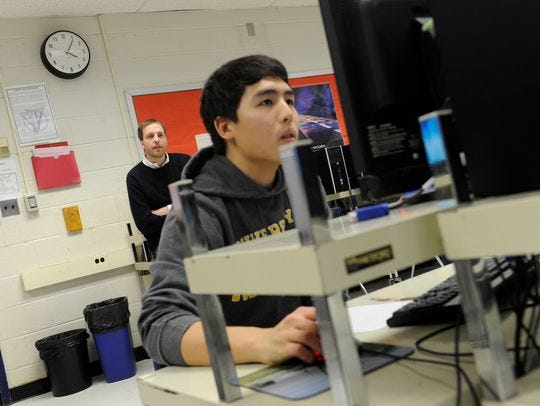The John Dewey Society will be celebrating the Centennial of the publication of John Dewey’s magisterial Democracy and Education in Washington DC on April 7 and 8, 2016. Please plan to participate in this historic celebration. Take out your calendars and mark these dates: April 7 and 8, 2016.
The Centennial Conference will take place the historic
Thurgood Marshall Center - where Thurgood Marshall and his NAACP colleagues
developed the legal strategies for victory over school segregation in Brown v.
Board. The center is located at: 1816 12th St NW, Washington, DC 20009
We want everyone interested in democratic education to
participate. The meeting will be free and open to the public, and will take
place immediately prior to the annual meeting of the John Dewey Society and the
American Educational Research Association.
But space is limited: reserve your spot today! (See below
for how to reserve your spot!)
Why Celebrate the Centennial of Democracy and
Education?
Democracy and Education is the most important book on
education in the twentieth century, and is the bible of democratic education
worldwide. Democracy and Education is cited more frequently
each year that all other classics of American educational studies - those by G.
Stanley Hall, Alfred Binet, Edward Thorndike and others - combined!
Democracy and Education has been translated into
every major world language and has inspired innovations and experiments in
democratic education - in public schools and private experimental schools - in
the United States and throughout the world - for one hundred years. Democracy
and Education is more relevant today than ever. We need to come
together to celebrate its centennial, and to renew our commitment to democratic
education. Please join us!
Democracy and Education Today
Despite the efforts of thousands of dedicated educators and
parents, schools in the United States today are still suffering under the
domination of top-down standardized education: compulsory curriculum standards,
pre-determined learning objectives, and high stakes standardized tests. This
standardization regime is sold as ‘preparing all learners for the global
economy’. In fact, it merely traps young people in a rat race for high test
scores and endless competition for slots in competitive colleges. Children from
elite families win; the rest struggle to survive.
The standardization regime compels teachers to abandon their
hard-won practical knowledge, ignore the strengths of individual learners, and
teach for the tests; It compels learners to give up their own passions and
goals to conform to a system where their own interests and aims count for
nothing. Instead of ‘no child left behind,’ this regime should be called ‘no
child left alive,’ as it has a deadening effect hostile to individual passions
and group aspirations. Instead of moving ahead - growing - young people are all
too often trapped in isolation, boredom, frustration, and rigged
competition.
The message of Democracy and Education -
its challenge to the standardization regime - needs to be re-stated, critically
digested, re-interpreted for today’s educational situation, and disseminated
for today’s teachers, parents and young people.
It’s core message is clear:
- that
education of young people is not preparation for adult life but life itself,
- that
the only aims worth pursuing in education are the aims of the learners
themselves, as individuals and as members of groups,
- that
teaching consists primarily in structuring learning environments that
engage learners in pursuing their aims - alone or in cooperative
groups,
- that
school lessons, however necessary to convey abstract and general
relations, are a peripheral, and often dangerously overused component of
schooling,
- that democracy is built through cooperation and communication across racial, ethnic, gender, class, religious, political and philosophical differences as learners work together to achieve practical aims.
Why Participate in the Centennial Event?
Through presentations and workshops, the Democracy
and Education Centennial in Washington on April 7-8 2016 will
offer you a chance to renew your appreciation of this great work, to exchange
ideas with other educators, to think through its message for today, and to
renew your commitment to democratic education.
How to Participate?
The conference will feature invited presentations by leading
scholars and democratic educators. The program committee will soon be
finalizing its selection of invited speakers and workshop presenters, and you
will hear exciting information about them in the months ahead. Meanwhile, all
of your suggestions are welcome.
Please mark your calendar and join us in Washington on April
7-8, 2016.
To reserve a spot, simply send an email to Kyle
Greenwalt, JDS Secretary-Treasurer, at greenwlt@msu.edu and
put the term ‘reserve’ (without the quotes) in the subject line.
You can reserve for yourself and a colleague in one email by
providing the name and email address of yourself and your colleague. But if you
want to assure more reservations, please promote the meeting to others and make
sure that they send emails to reserve their spaces. Requesting a space
indicates that you have placed the centennial event on your calendar and plan to
attend. We want to assure a lively and enthusiastic participation, but space is
limited.


